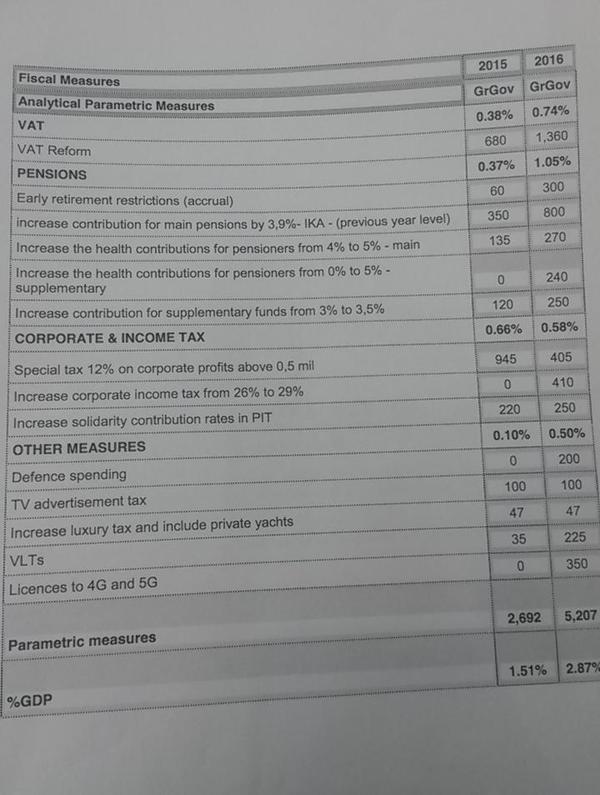Under mounting pressure, Greece presented its new reform proposals to its Eurozone partners on Monday aimed at the release of 7.2 bn euros worth of bailout funds benchmarked for Greece. An agreement is needed to stave off a Greek default.
Expectations for a deal were raised when an EU official said that the Greek proposals were the first “detailed and credible” plan that the international creditors have seen after five months of haggling. The official said that Greeks had made meaningful concessions on VAT rates and pension reforms.
Dutch Finance Minister Jeroen Dijsselbloem said that EU institutions needed time to look at the Greek proposal, refering to these as “a basis to really restart the talks again and really get a result.”
Eurozone finance ministers say that a deal could come within days, just in time for Greece to repay the 1.6-bn-euro loan from the International Monetary Fund (IMF) due on June 30.
Here are the Greek proposals in a nutshell:
TAX
Tax issues are at the heart of the proposals submitted to Brussels by the Greek government with the goal being to shift the tax burden from vulnerable low-earning groups towards businesses and the wealthy:
* VAT – There will be three value added taxes of 23%, 13% (for electricity, restaurants etc.) and 6% (medicine, basic items). Lenders had asked for two VAT rates at 11% and 23%.
* Solidarity tax – A solidarity tax of 8% for high earners over 500,000 euros has been introduced. The new index is as follows 0.7% (12,000-20,000 euros per annum), 1.4% (20,001-30,000 euros), 2% (30,001-50,000), 4% (50,000-100,000 euros), 6% (100,001-500,000 euros) and 8% (500,000 +)
* Corporate and Luxury tax – (a) 12% levies for businesses that declare profits over 500,000 euros; (b) increases on luxury tax on pools, jets, large cars, yachts over 33 feet, etc; (c) gambling tax for slot machines.
PENSIONS
Greece has offered to raise the retirement age to 67 years from June 30, 2015. Early retirement will gradually be curbed from 2016 through to 2025, however some categories, including hard and heavy professions and disabled mothers will continue to be exempt from the new measures.
Low-income pensioners will receive a special monthly benefit (57-230 euros), however this will replaced from 2020 by a new protection framework for low pensioners. Lenders want to see this scrapped.
PRIMARY BUDGET SURPLUS
The primary budget surplus will be 1% for 2015 and 2% in 2016. This is higher than what the Radical Left Coalition (SYRIZA) government had called for but lower than the 3% and 4.5% that the previous Greek governments had agreed to.
PUBLIC SECTOR WAGES
There will be no cuts from end-2014 levels.
PRIVATIZATIONS
The government has placed the privatization of its power grid operator (ADMIE) and the Public Power Corporation off limits though creditors had called for htese to be privatied.
Privatizations that take place will impose a minimum amount of investment and come attached with a commitment by investors to promtoe the local economy.
INVESTMENT
Greece wants infrastructure and new technologies to be financed as part of its new deal through an investment package from the European Commission and European Investment Bank.
SPENDING CUTS
Defence spending is to be cut by 200 mln euros
Ask me anything
Explore related questions






